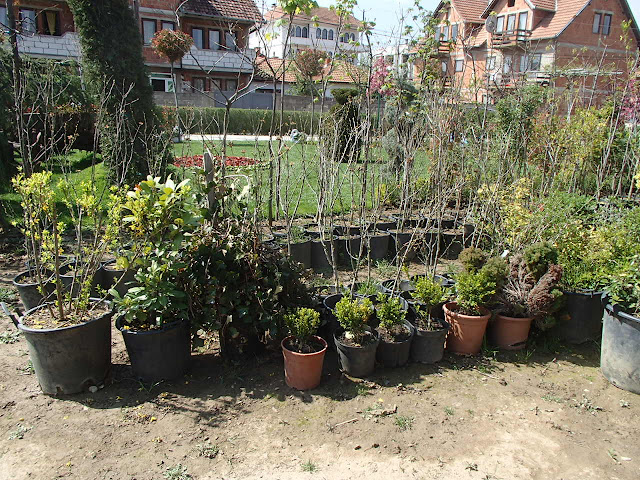Your Nursery Visit
There are many plants to choose from when landscaping your home. But which will perform best? How and where should they be grown in your yard? Landscape plants can be chosen from your local nurseries and garden centers which, for the most part, grow well in our desert environment. Your job is to choose the right size plant, put them in the best location, and amend the soil where they are growing.
Make Two Trips
This may take two trips. The first is just
to gather information, take this information home and investigate your choices.
Your second trip is to purchase the plants and proper soil amendments.
Your first selection criterion is winter
hardiness. This information can be found online. Major trees and shrubs
important to your landscape should withstand temperatures to 20°F during the
winter months for their long-term health and survivability. Plants that can be
lost or damaged in the landscape should tolerate winter temperatures to 25°F.
If you want to experiment and have some fun with plants, select plants that
don’t handle any freezing temperatures at all.
Plant Size
You can reasonably reduce the size of a plant to about two thirds of its
mature height and width. This takes work and expense on your part as it gets
older. It’s best to choose a plant that’s closer to the right size at the very
beginning.
Microclimates
Another factor is landscape location. Some plants tolerate the hotter Western and Southern exposures. Plants that perform best in these hot, dry, and isolated locations frequently originate from hot, desert climates in the southwestern US (Chihuahuan, Sonoran, Mojave and Great Basin deserts). Other plants will struggle in these locations and should be planted in Eastern or Northern exposures. Again, online research helps you in this decision.
Rock or Woodchips?
Some plants grow well for many years surrounded by rock. Others may grow there okay for a few years and then begin to suffer. Plants from places like the East Coast, Asia or tropical areas should be surrounded by woodchips rather than rock for long-term health and well-being.
Research Three Plants
Select
three plants for each location before you do your online research. Online
databases from the Southern Nevada water Authority and Arizona State University
are good places to start. You can always contact me for more help if you need
it.





Just found you site. Thank you so much for the information you provide. We live in Las Vegas, just bought a house and planning to more edible plants and fruit trees. Your info is very helpful for us to choose what to grow here.
ReplyDeleteThanks again and have a beautiful weekend, Pam